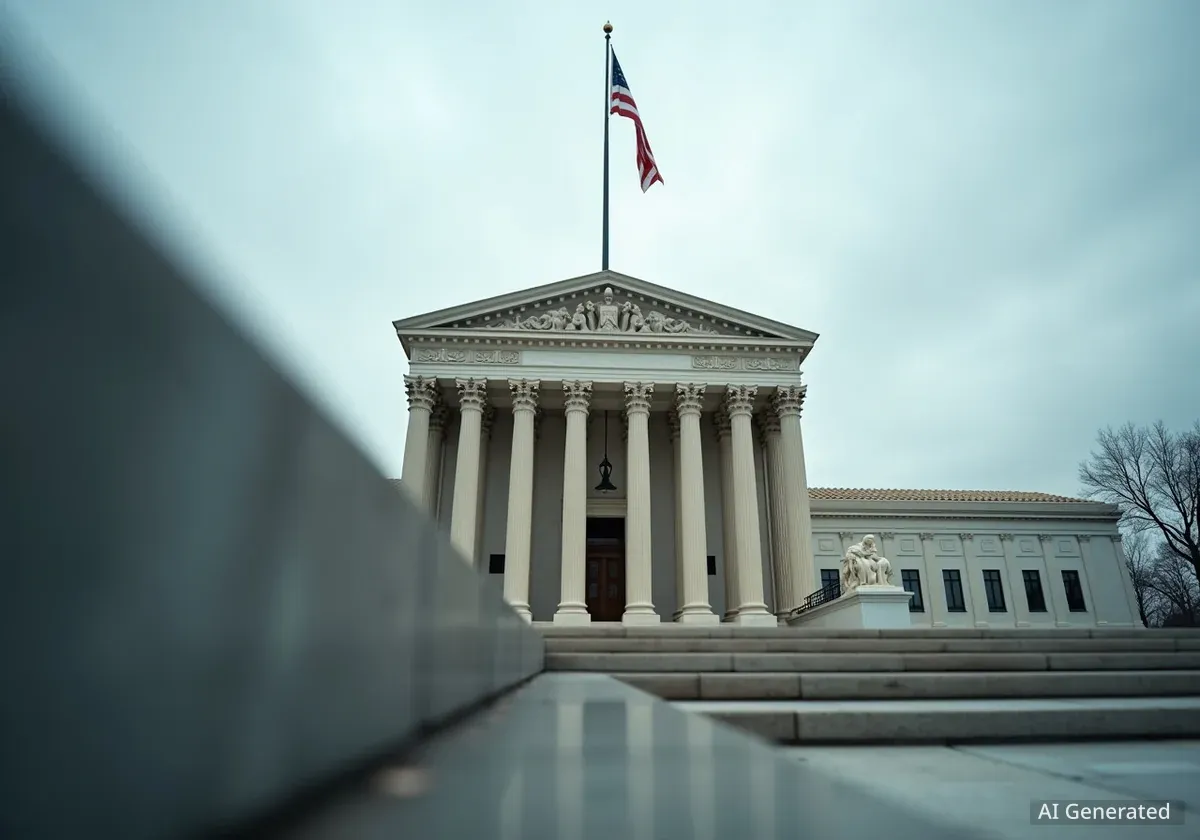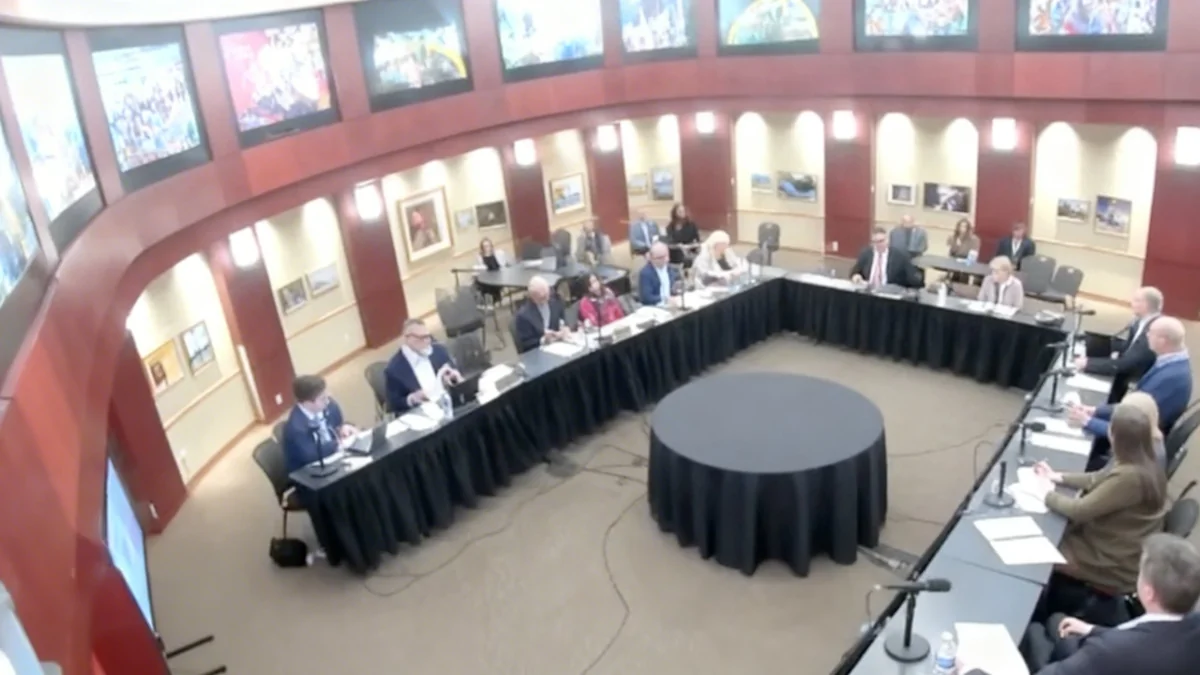A federal judge in Oregon has indicated she will block a Trump administration policy that aimed to withhold federal funding from schools with inclusive policies for transgender students. The decision follows a lawsuit filed by a coalition of 16 states and the District of Columbia, marking a significant development in the ongoing conflict over educational funding and student rights.
The ruling, announced by U.S. District Judge Ann Aiken, provides a temporary but crucial victory for public schools that have resisted federal directives to alter their sex education curricula and policies regarding transgender youth. The injunction will prevent the administration from restricting funds while the legal challenge proceeds.
Key Takeaways
- A federal judge intends to issue a preliminary injunction against a Trump administration policy targeting schools with inclusive transgender policies.
- The lawsuit was brought by 16 states and the District of Columbia, arguing the policy was an unconstitutional abuse of power.
- The policy threatened to withhold tens of millions of dollars in federal education funds from non-compliant school districts.
- Numerous school districts in states like Virginia, Colorado, and Illinois had defied the federal directives prior to the ruling.
The Legal Challenge to Federal Directives
The legal battle began after the Trump administration issued an executive order that sought to prevent what it termed the "social transition" of transgender students in schools. This broad term was applied to practices such as using a student’s chosen name and pronouns, as well as allowing access to appropriate facilities and sports teams.
When many school districts across the country did not comply with the order, the administration shifted its focus. It began threatening to cut off federal grants for comprehensive sex education programs if their curricula included content on gender identity. This action prompted a coalition of states to file a lawsuit, asserting that the administration's directive was unlawful.
Arguments of the States
The 16 states and the District of Columbia argued that the administration's policy violated the Administrative Procedure Act, which governs how federal agencies develop and issue regulations. They also claimed the directive was "arbitrary and capricious" and overstepped the executive branch's authority, infringing on the constitutional separation of powers.
During a conference call with legal representatives, Judge Ann Aiken stated her intention to grant the preliminary injunction. While the full written order has not yet been released, her reasoning pointed to the discriminatory nature of the policy.
Judge Aiken denounced the administration's approach, describing it as "a sort of separate-but-equal policy" for sex education.
This decision temporarily halts the administration's ability to use federal funding as leverage against schools that support their transgender students, allowing existing inclusive policies to remain in place without financial penalty as the case moves forward.
Schools and States at the Center of the Conflict
Prior to the lawsuit, several states and individual school districts became targets of the administration's policy. The threats to withdraw funding were specific and substantial, impacting millions of dollars in educational grants.
Targeted Curricula and Policies
The administration's objections were often aimed at basic acknowledgments of gender identity. For example, California faced the blockage of millions in funding because its sex education lessons acknowledged the existence of transgender people, which the administration labeled "gender ideology content."
In Maine, federal funding was threatened simply because its curriculum glossary included a definition for "gender identity." In Massachusetts, the state's materials were flagged for noting that gender norms are culturally relative and change over time.
These actions demonstrated a broad effort to compel states and schools to remove any mention of gender identity from their educational materials, regardless of state and local policies designed to be inclusive and medically accurate.
A Nationwide Pattern of Resistance and Compliance
The response from educational institutions has been divided. While the states in the lawsuit chose to fight the directive in court, many large school districts independently decided to defy the federal pressure. Five major districts in Virginia rejected demands to restrict bathroom access for transgender students, prompting the administration to begin proceedings to terminate their funding.
Public school leaders in Denver, Chicago, and New York City also publicly refused to comply with the mandates. The superintendent of Denver Public Schools stated the district "will protect all of their students from this hostile administration," signaling a commitment to student welfare over federal compliance in this matter.
However, not all institutions have resisted. A number of prominent universities, including Harvard, Penn, Brown, and Columbia, have reportedly complied with administration demands to avoid jeopardizing federal funding. Similarly, more than 20 hospitals, even in states with legal protections for transgender people, have ceased providing gender-affirming care for youth due to fear of financial repercussions. This includes Fenway Health, a well-known LGBTQ+ healthcare provider.
Broader Implications of the Ruling
This preliminary injunction represents a significant legal obstacle for the administration's strategy of using federal funds to enforce its social policies on local school districts. It reinforces the position of states and schools that have argued such directives are an overreach of executive authority.
The ruling joins a series of court decisions where challenges against the administration's efforts to target transgender individuals through federal funding have been successful. It provides legal backing for institutions choosing to maintain inclusive policies despite federal pressure.
States Involved in the Lawsuit
The coalition that challenged the administration's policy includes:
- California
- Colorado
- Connecticut
- Delaware
- Hawai‘i
- Illinois
- Maine
- Maryland
- Massachusetts
- Michigan
- Minnesota
- New Jersey
- New York
- Oregon
- Rhode Island
- Washington
- Wisconsin
- District of Columbia
The fight is not over. The legal proceedings will continue, and the ultimate outcome remains to be seen. Furthermore, the issue is intertwined with the federal budget process, as several anti-transgender provisions are reportedly included in appropriations bills for the upcoming fiscal year. For now, however, the schools and states that stood firm have secured a powerful legal victory.





